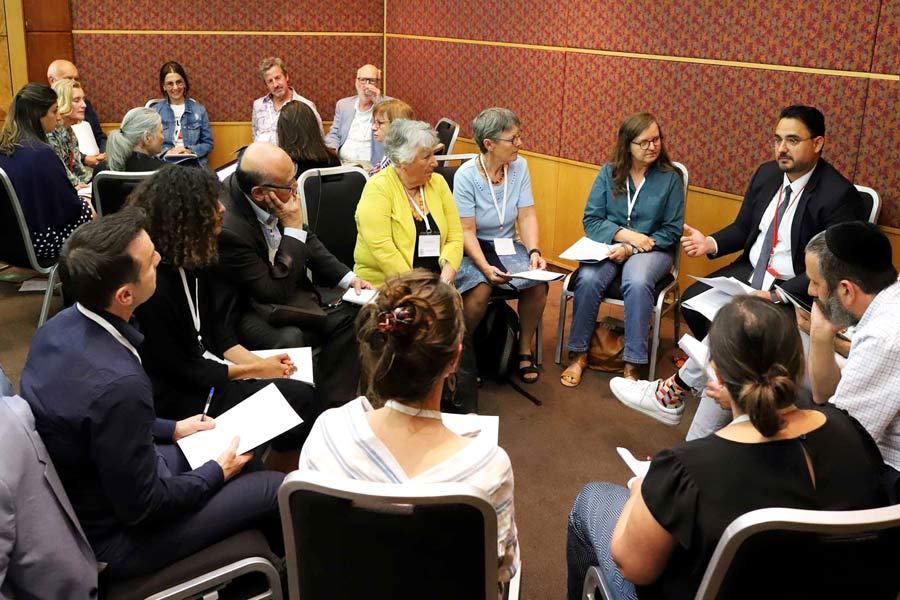In recent times, the world has grappled with a myriad of challenges, not least among them the unprecedented global pandemic that swept across nations, reconfiguring societal norms, interpersonal connections, and community dynamics. In Australia, this period of turmoil facilitated a profound exploration of social cohesion, a theme deeply embedded in the Bahá’í teachings. This discourse illuminates the vital interplay between collective engagement and societal resilience, unveiling how community dialogues can serve as conduits for transformative change.
At the heart of Bahá’í principles lies the recognition that humanity is fundamentally interconnected. The pandemic illuminated this interconnectedness, prompting a reevaluation of previously held paradigms. As social distancing became paramount, conversations shifted from physical spaces to virtual platforms. In Australia, this transition prompted innovative avenues for fostering social cohesion, bringing communities together amidst isolation. Thus, the Bahá’í approach to social discourse became paramount—encouraging empathetic engagement and facilitating a shared understanding among diverse groups.
The Bahá’í teachings emphasize the need for unity and the elimination of prejudice. The interactions inspired by the pandemic have catalyzed a revival of discussions centered around these core tenets. Residents across Australia have formed networks aimed at addressing local needs, sharing resources, and nurturing relationships. The prominence of virtual gatherings maximized participation and included voices often marginalized in traditional forums. This amalgamation of perspectives not only unified communities but also catalyzed a reexamination of societal norms, inviting participants to cultivate a deeper understanding of collective existence.
Such conversations pivot on the notion of psychological safety—the assurance that individuals can express their thoughts without fear of retribution. This concept is especially relevant in a multicultural landscape like Australia, where varied experiences and backgrounds contribute to a rich tapestry of viewpoints. By fostering an atmosphere of trust and respect, individuals feel empowered to share narratives that might otherwise remain unheard. Herein lies an intrinsic promise of the Bahá’í ethos: the validation of every voice within a community narrative, thereby enhancing the collective’s resilience in times of crisis.
The shift towards community-centric dialogues represents a departure from prior ingrained practices, which frequently emphasized individualism over collective well-being. The Bahá’í principle of consultation, a hallmark of community governance, has assumed renewed significance during this period. Engaging in meaningful consultation cultivates a sense of ownership and accountability among community members, underscoring the importance of collaborative problem-solving. As Australians grapple with the myriad implications of the pandemic, this framework encourages proactive engagement, driving communities towards collective action rather than passive suffering.
Moreover, the urgency of the pandemic has compelled an examination of systemic inequities exacerbated by global crises. The Bahá’í teachings call for collective action to address social inequalities, recognizing that true progress demands a commitment to uplift marginalized populations. In many Australian communities, grassroots initiatives have emerged in response to the urgent need to support those disproportionately affected by the pandemic. Such initiatives resonate with the Bahá’í call to service, embodying the spirit of selfless action driven by a collective conscience.
The conversations surrounding social cohesion also emphasize the interplay between community aspirations and global interdependence. In recognizing that local challenges often reflect broader societal issues, Bahá’í teachings advocate for a perspective that transcends parochial interests. This global-local nexus compels communities to not only address immediate needs but also contribute to a larger narrative of social progress. Through local initiatives, Australians are encouraged to envision a collaborative future, thereby embracing a dual responsibility to both their immediate neighbors and distant compatriots.
As these conversations unfold, the importance of spirituality in fostering resilience cannot be overlooked. The Bahá’í teachings accentuate the role of spiritual principles in personal and communal development. In a time characterized by uncertainty and a plethora of existential questions, individuals are increasingly drawn toward spiritual discourse as a means of navigation. The fostering of spiritual literacy within community dialogues can lead to insights that transcend material concerns, guiding collective hearts toward pathways of hope and solidarity.
Looking towards the future, the lessons gleaned from these conversations hold the promise of a lasting paradigm shift. The emergent recognition of interdependence among diverse voices cultivates a fertile ground for innovation and creativity in addressing social challenges. It invites all stakeholders to not merely react to crises as they unfold but to proactively co-create responsive, equitable systems that embody the values of unity and justice espoused in Bahá’í teachings.
In conclusion, the conversations on social cohesion that have burgeoned in Australia since the pandemic evoke a transformative potential—one that can redefine societal norms and foster a collective ethos rooted in empathy, collaboration, and shared purpose. As Australians engage with one another through these dialogues, the principles inherent in the Bahá’í teachings serve as guiding stars, illuminating pathways toward holistic development. In this collective journey, each individual has a role to play, embodying the ideals of unity that promise a brighter, more connected future for all.
